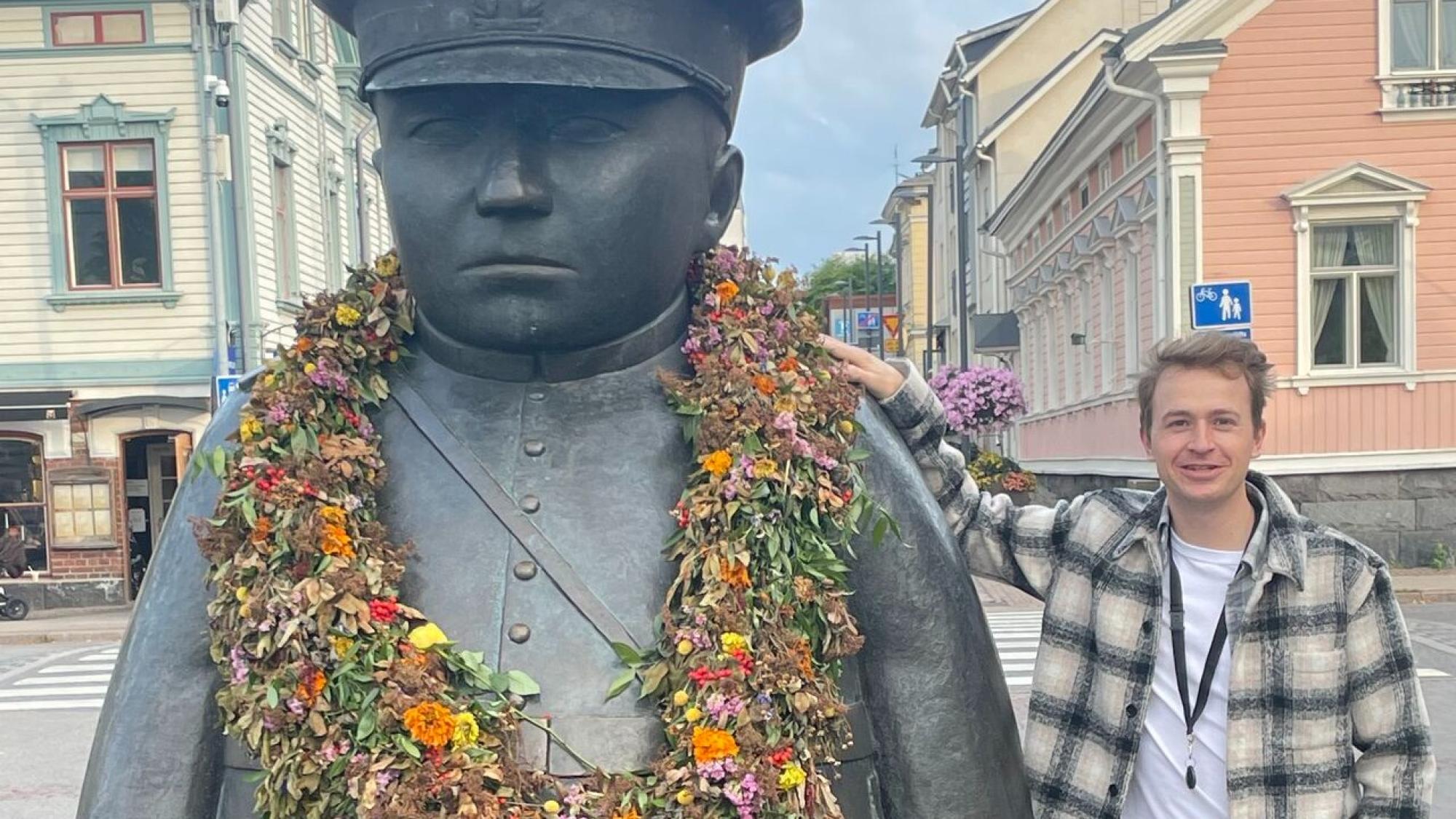HI Mobility programme advances international collaborative research on hybrid intelligence at the University of Oulu

By welcoming talented scholars from around the world through mobility funding, HI programme not only advances research in hybrid intelligence but also fosters a vibrant, cross-cultural academic community. First HI visiting scholars stayed at the University of Oulu during 2025 and willingly share their experiences.
Doctoral researcher Yixin Cheng: “Writing with AI is not just about automation, but about distributing cognitive work between human and machine”
Yixin Cheng, a third-year PhD candidate at Monash University, Australia, studies intersection of human–AI interaction, writing, and educational psychology. He focuses on how generative AI tools shape writing practices and learning processes, combining perspectives from HCI, self-regulated learning, and sociocultural theory. The themes aligned with HI programme´s research themes perfectly.
“A central question in my work is whether generative AI fosters metacognitive laziness, in other words when do learners offload the self-controlling and self-monitoring processes that are essential for deep learning and effective problem-solving.” Cheng explains.
In a recent study, Cheng found that learners asked significantly more questions with generative AI (GenAI), often short and pragmatic ones focused on filling knowledge gaps. In contrast, conversations with human tutors were longer, more indirect, and framed as requests for feedback.
“Interestingly, the more pragmatic, GenAI-like questioning style was linked to stronger performance”, Cheng says.
Hybrid intelligence is central to Cheng´s research vision, since writing with AI is not just about automation, but about distributing cognitive work between human and machine.
“My studies show how writers treat AI sometimes as a tool, sometimes as a collaborator, and sometimes as something in-between. Understanding this dynamic is essential for designing AI systems that truly support human creativity and learning”.
Fruitful collaboration continues with the University of Oulu after the exchange with long-term study on generative AI and self-regulated learning
Cheng´s two months in Oulu was marked by fruitful collaborations, particularly with the Learning and Educational Technology (LET) Research Lab and the Research Center for Living and Learning with Artificial Intelligence (CELLA).
“The exchange was extremely valuable, since I got the chance to collaborate with the LET Research Lab, one of the world leaders in self-regulated learning.”
He collaborated with Dr. Joni Lämsä and Prof. Sanna Järvelä on projects that connect self-regulated learning, writing, and generative AI – and the work continues still after the exchange. They are now developing a long-term collaborative study that ultimately uses generative AI to effectively and adaptively scaffold personalised SRL strategies during writing.”
“The experience has deepened my understanding of how self-regulated learning connects with human–AI interaction, and it has expanded my theoretical perspective and methodological toolkit for studying learning in complex environments”, Cheng reflects.
Chen enjoyed the sense of community and the natural beauty in Oulu – also through lens as he is into photography. He was happy that the University of Oulu fosters collaboration across disciplines, which aligns perfectly with his interdisciplinary approach.
“Informal discussions with fellows in the HI programme gave fresh perspectives for my own research, LET and HI seminars were particularly enriching, as they exposed me to new ideas and approaches that I can take forward in my future work”, Chen concludes.

Doctoral researcher Jens Gebele: “Intelligence is not only about computation, but also about connection—between people, knowledge, and machines”
Doctoral researcher Jens Gebele spent two months with the Hybrid Intelligence research programme at the Center for Machine Vision and Signal Analysis (CMVS), delving into the intersection of deep learning and human-like reasoning. The visit was part of his ongoing PhD research on Neuro-Symbolic AI for analysing facial behaviour of emotions.
Under the guidance of University of Oulu researchers Dr. Yante Li and Prof. Guoying Zhao, Gebele explored how abductive learning can bridge the gap between data-driven models and transparent, generalisable reasoning. By integrating symbolic reasoning, specifically knowledge from the Facial Action Coding System, the goal was to build a framework that can revise its predictions and refine its understanding of the complex relationships between facial Action Units (AUs) and emotions. Gebele’s work included preparing datasets and developing a dual-head model for joint AU and emotion prediction. For results, they analysed the BP4D dataset.
“We identified substantial annotation gaps and task-related biases in emotion expression, emphasising the need for hybrid approaches that unite computational efficiency with human interpretability, a core ambition of the Hybrid Intelligence vision”, Gebele explains.
Beyond the lab, Gebele found Oulu’s community and natural beauty deeply enriching - from discussions with CMVS researchers to evenings by the Finnish lakes and even salmon fishing in Lapland.
“I found a community that balances innovation with a deep appreciation for nature and wellbeing. The openness and curiosity of everyone I met made this collaboration both productive and memorable. It became an inspiring chapter in my academic journey, both scientifically and personally,” Gebele reflects.
Gebele sees hybrid intelligence research moving toward AI systems that are not only more explainable and human-aligned but also grounded in reasoning, context, and ethical awareness.
“HI is an exciting direction that reminds us intelligence is not only about computation, but also about connection—between people, knowledge, and machines”, Gebele concludes.
University of Oulu and HI programme are committed to international collaboration, interdisciplinary research, and want to offer holistic development possibilities to scholars. As Cheng´s and Gebele´s experiences show, Oulu is not just a place for scientific advancement, but also for building lasting connections.